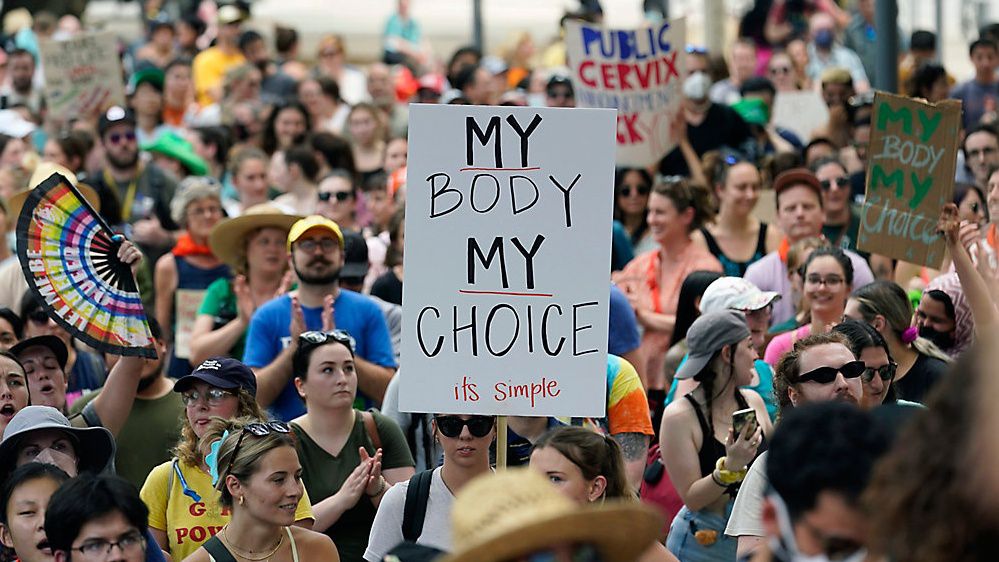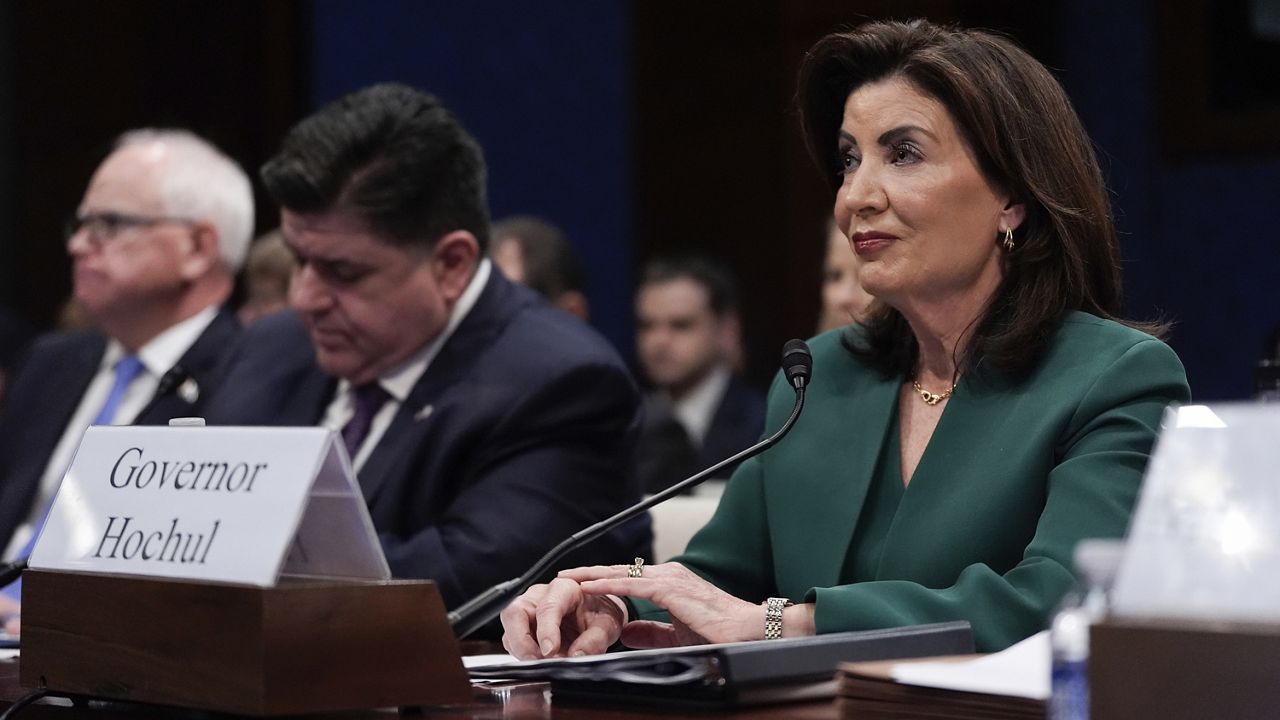Democratic lawmakers in the state Legislature are considering multiple potential amendments to New York's constitution in response to the pending U.S. Supreme Court ruling that could upend the Roe v. Wade decision.
The question facing Democrats in Albany is how narrow or broad the amendment should be as the court could formally rule in the coming weeks on the future of abortion rights in the country.
It's also possible lawmakers may approve multiple amendments to address abortion rights in addition to more expansive gender equality stipulations enshrined in the constitution.
New York lawmakers, like many states in response to the leaked draft of the ruling, are racing to develop their own laws govering abortion measures if the ruling ultimately sends the issue back to the states.
Democrats and abortion rights advocates have mobilized quickly in the last day to respond to the potential of Roe v. Wade being overturned, with Gov. Kathy Hochul pledging action at multiple rallies held in Albany on Wednesday. Those who oppose abortion, meanwhile, have critcized the leak of the draft ruling, worrying that it is part of an effort to prevent it from being officially issued.
- New laws, executive actions eyed to embolden New York abortion protections
- What New York abortion, anti-abortion activists see in state's future if Roe v. Wade overturned
- Legal analysis: If draft ruling overturning Roe v. Wade stands, other rights could be in jeopardy
- Abortion debate likely to return to New York
Some Democratic lawmakers in New York are calling for a wide-ranging set of rights laid down in a proposed constitutional amendment that would address not just abortion, but also gender equality. But other legislators want a more narrowly defined amendment to address abortion and Roe v. Wade.
"We need to make New York a sanctuary state," said state Assemblyman Tom Abinanti. "We need to protect those who come to New York, those who live in New York, to use the services here to protect their reproductive and help those who provide medical services."
Abinanti wants an amendment that would protect "bodily integrity" in the state in addition to further legal protections.
"There are many options for a constitutional amendment," Abinanti said. "There's a very narrow constitutional amendment which I have proposed, there's always the option of having an amendment for a women's equaltiy constitutional amendment and then there's a broader proposal that would include a lot of classes not protected in the constitution."
A constitutional amendment must first be approved by two separately elected sessions of the Legislature. So, lawmakers would have to vote this year to approve the amendment and then give second passage to it next year after the newly elected Legislature is sworn in.
The amendment is then put before voters in a referendum for final approval.
Republicans, meanwhile, blasted the leak of the draft ruling itself. U.S. Rep. Lee Zeldin, a candidate for governor who opposes abortion, said the process needs to unfold among the top court's justices.
"Here we're seeing political pressure being applied to jusitces of the United States Supreme Court who have always been able to go through this process without that kind of political interference," he said.








